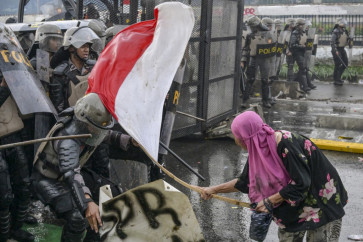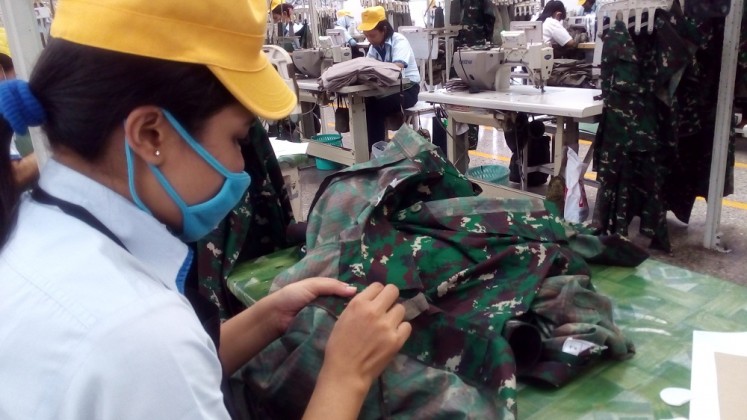Popular Reads
Top Results
Can't find what you're looking for?
View all search resultsPopular Reads
Top Results
Can't find what you're looking for?
View all search resultsCompensation call renewed for mudflow victims
The National Commission on Human Rights has renewed its call for the government to compensate the thousands of people affected by the East Java mudflow disaster, which has claimed their land and livelihoods
Change text size
Gift Premium Articles
to Anyone
T
he National Commission on Human Rights has renewed its call for the government to compensate the thousands of people affected by the East Java mudflow disaster, which has claimed their land and livelihoods.
Commission chairman Ifdhal Kasim said Wednesday the government had yet to take con-crete actions to solve the problem.
"Many victims have not yet received compensation. This has robbed them of their economic and social rights," he told a press conference Wednesday.
PT Lapindo Brantas, an oil and gas exploration contractor appointed by upstream oil and gas regulator BPMigas, is considered responsible for the May 29, 2006, disaster that was allegedly triggered by its drilling activities.
The mudflow eventually affected a 90-hectare area, forcing locals to flee homes and rice fields.
The commission said the disaster was one of thousands of human rights cases that have not been resolved by the government as of this year.
The commission's head of monitoring and investigation subcommissions, Nurkholis, said the commission received 4,926 complaints related to human rights abuses this year, an increase from 4,843 last year.
The complaints, he said, came mostly from Jakarta, East Java and North Sumatra.
He said the commission recorded 836 cases from Jakarta, 609 cases from East Java and 529 cases from North Sumatra.
Ifdhal said the increase in the number of complaints was mainly due to the government's lack of consideration of human rights in its decision-making processes.
"The government has not taken serious, well-planned steps to ensure the rights of its citizens are protected," he said.
Nurkholis said the majority of the complaints revolved around violations of rights to obtain justice, prosperity and security.
The commission's head of mediation, Syafruddin Ngulma Simeulue, said there were 111 mediations in 2009. He said the commission was only able to resolve a few of these cases.
The cases were from East Java, and were all labor-related, involving conflicts between employees and their companies, such as state plantation company PTPN, Sakinah Hospital and Syaiful Anwar Hospital.
Ifdhal said many companies had deprived laborers of their economic and social rights by paying them rates far below the minimum wage set by regional administrations, for example.
Ifdhal said Jakarta had the highest rate of human rights violation. There were a lot of complaints from many layers of society, including from laborers, housewives, lecturers and NGOs.
He also said millions of citizens had been deprived of their rights during the April 9 House of Representatives election.
"The mismanagement of the electoral process has deprived people of their political and civil rights," he said.










